BMW X3 VS Mercedes V Class – Specs, Efficiency & Price Comparison
Find out now which car fits your needs better!
The BMW X3 (SUV) is powered by a Petrol MHEV, Diesel MHEV or Plugin Hybrid engine and comes with a Automatic transmission. In comparison, the Mercedes V Class (Bus) features a Diesel or Petrol engine and a Automatic gearbox.
When it comes to boot capacity, the BMW X3 offers 570 L, while the Mercedes V Class provides 1410 L – depending on what matters most to you. If you’re looking for more power, you’ll need to decide whether the 398 HP of the BMW X3 or the 237 HP of the Mercedes V Class suits your needs better.
There are also differences in efficiency: 0.90 L vs 7.10 L. In terms of price, the BMW X3 starts at 50900 £, while the Mercedes V Class is available from 44900 £.
Compare all the key specs now and find out which model fits your lifestyle best!
BMW X3
The BMW X3 stands out in the competitive SUV market with its refined blend of performance and luxury. Its interior boasts high-quality materials and a design focused on driver comfort and convenience. With a robust engine lineup, the vehicle offers a balanced driving experience that caters to both urban settings and off-road adventures.
details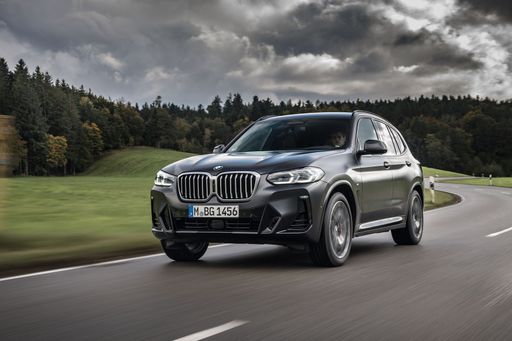 @ press.bmwgroup.com
@ press.bmwgroup.com
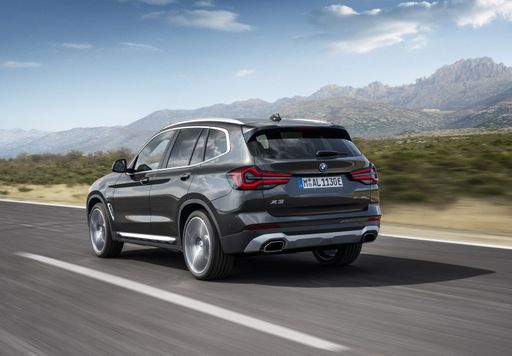 @ press.bmwgroup.com
@ press.bmwgroup.com
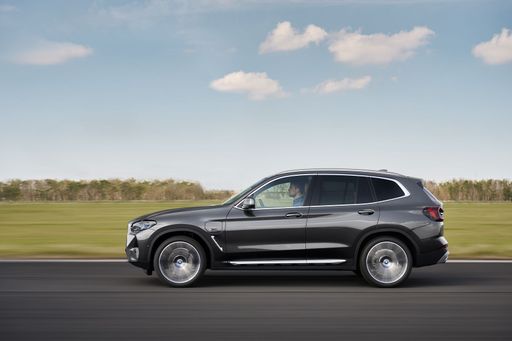 @ press.bmwgroup.com
@ press.bmwgroup.com
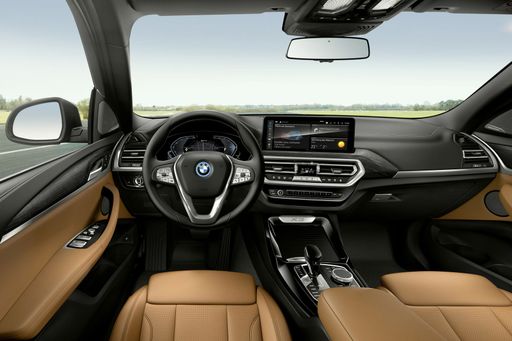 @ press.bmwgroup.com
@ press.bmwgroup.com
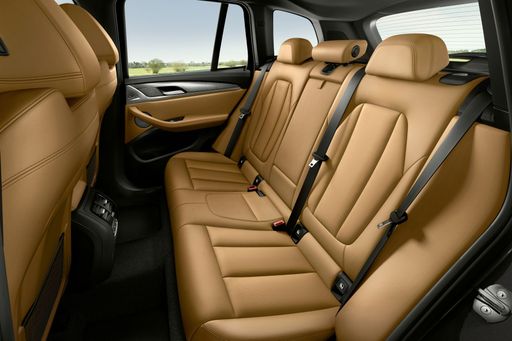 @ press.bmwgroup.com
@ press.bmwgroup.com
Mercedes V Class
The Mercedes-Benz V-Class exemplifies luxury and versatility in the world of multi-purpose vehicles. Its spacious interior is designed to accommodate both family adventures and executive travel with supreme comfort. With advanced technology and premium materials, the V-Class offers an unparalleled driving experience that seamlessly blends practicality with elegance.
details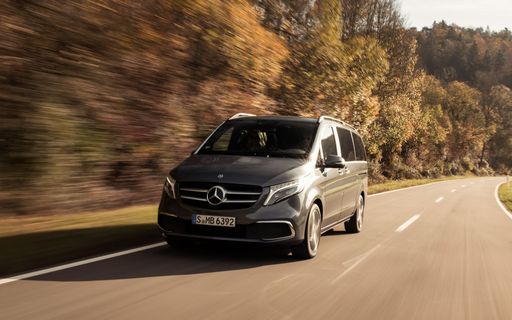 @ group-media.mercedes-benz.com
@ group-media.mercedes-benz.com
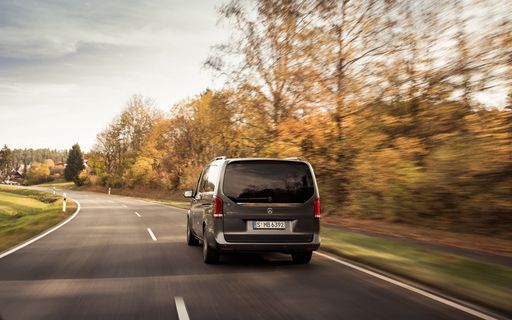 @ group-media.mercedes-benz.com
@ group-media.mercedes-benz.com
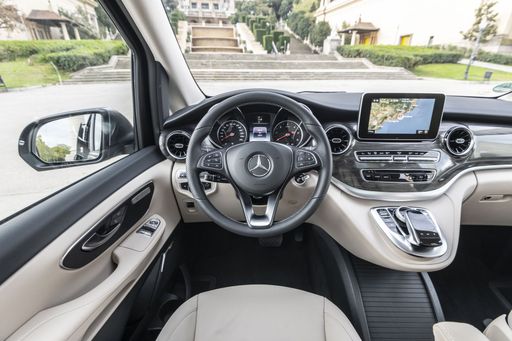 @ group-media.mercedes-benz.com
@ group-media.mercedes-benz.com
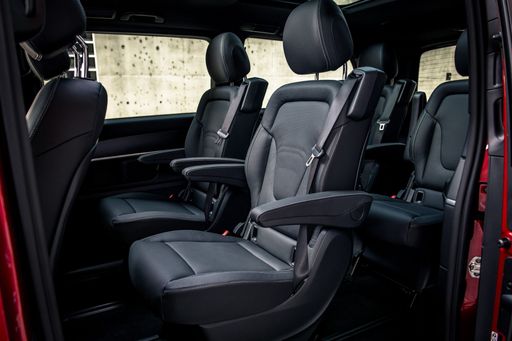 @ group-media.mercedes-benz.com
@ group-media.mercedes-benz.com

|

|
|
|
|
Costs and Consumption |
|
|---|---|
|
Price
50900 - 72400 £
|
Price
44900 - 79500 £
|
|
Consumption L/100km
0.9 - 7.7 L
|
Consumption L/100km
7.1 - 10.2 L
|
|
Consumption kWh/100km
-
|
Consumption kWh/100km
-
|
|
Electric Range
90 km
|
Electric Range
-
|
|
Battery Capacity
19.70 kWh
|
Battery Capacity
-
|
|
co2
21 - 175 g/km
|
co2
185 - 232 g/km
|
|
Fuel tank capacity
50 - 65 L
|
Fuel tank capacity
57 - 70 L
|
Dimensions and Body |
|
|---|---|
|
Body Type
SUV
|
Body Type
Bus
|
|
Seats
5
|
Seats
6
|
|
Doors
5
|
Doors
5
|
|
Curb weight
1930 - 2140 kg
|
Curb weight
2192 - 2464 kg
|
|
Trunk capacity
460 - 570 L
|
Trunk capacity
610 - 1410 L
|
|
Length
4755 mm
|
Length
4895 - 5370 mm
|
|
Width
1920 mm
|
Width
1928 mm
|
|
Height
1660 mm
|
Height
1901 - 1908 mm
|
|
Payload
570 kg
|
Payload
636 - 908 kg
|
Engine and Performance |
|
|---|---|
|
Engine Type
Petrol MHEV, Diesel MHEV, Plugin Hybrid
|
Engine Type
Diesel, Petrol
|
|
Transmission
Automatic
|
Transmission
Automatic
|
|
Transmission Detail
Automatikgetriebe
|
Transmission Detail
Automatikgetriebe
|
|
Drive Type
All-Wheel Drive
|
Drive Type
Rear-Wheel Drive, All-Wheel Drive
|
|
Power HP
197 - 398 HP
|
Power HP
163 - 237 HP
|
|
Acceleration 0-100km/h
4.6 - 7.8 s
|
Acceleration 0-100km/h
7.4 - 10.7 s
|
|
Max Speed
215 - 250 km/h
|
Max Speed
188 - 220 km/h
|
|
Torque
330 - 670 Nm
|
Torque
370 - 500 Nm
|
|
Number of Cylinders
4 - 6
|
Number of Cylinders
4
|
|
Power kW
145 - 293 kW
|
Power kW
120 - 174 kW
|
|
Engine capacity
1995 - 2998 cm3
|
Engine capacity
1950 - 1999 cm3
|
General |
|
|---|---|
|
Model Year
2024 - 2025
|
Model Year
2024
|
|
CO2 Efficiency Class
F, E, B
|
CO2 Efficiency Class
G
|
|
Brand
BMW
|
Brand
Mercedes-Benz
|
BMW X3
Introducing the BMW X3: A Blend of Power and Innovation
The BMW X3 is a testament to the brand’s commitment to merging luxury with cutting-edge technology. This SUV not only offers impressive on-road performance but also showcases innovative features that cater to both petrolheads and eco-conscious drivers.
Powerful Performance Across the Range
The BMW X3 comes with various powertrain options to suit diverse driving preferences, ranging from efficient plug-in hybrids to powerful petrol and diesel mild-hybrids. With performance outputs ranging from 184 PS to an impressive 510 PS, the X3 proves its versatility on the road. Paired with BMW's renowned automatic transmission, each model offers a smooth and responsive driving experience complemented by the brand's xDrive all-wheel-drive system.
Leading-Edge Hybrid Technology
Among the X3's portfolio, the plug-in hybrid variants stand out with their optimal balance between efficiency and performance. These models boast electric-only ranges up to 90 km, ideal for urban driving with minimal emissions. Meanwhile, the mild-hybrid systems enhance efficiency by recuperating energy during deceleration and supporting the combustion engine, optimizing fuel consumption ranging from 0.9 L/100km to 10.8 L/100km depending on the model.
Contemporary Design with Practical Features
From a design perspective, the BMW X3 maintains its iconic SUV silhouette, characterized by robust proportions and sleek, aerodynamic lines. With dimensions of up to 4755 mm in length and a luggage capacity of up to 570 litres, it caters to both style enthusiasts and practical users. Additionally, the interior showcases BMW’s commitment to sophistication, featuring high-quality materials, state-of-the-art infotainment systems, and comprehensive driver-assistance technologies.
Efficiency Meets Performance
The X3's impressive performance figures are complemented by its responsible approach to CO2 emissions, aligning with EU efficiency standards. Enhanced by its comprehensive suite of driver aids and intelligent safety features, the X3 ensures both the thrill of driving and peace of mind.
Conclusion: The Ultimate Driving Companion
In essence, the BMW X3 represents the perfect intersection of dynamic performance, fuel efficiency, and modern-day technology. With options catering to diverse needs and preferences, it remains a leading choice for drivers seeking versatility, innovation, and luxury.
Mercedes V Class
Introduction to the Mercedes-Benz V-Class
The Mercedes-Benz V-Class offers a unique blend of luxury, versatility, and cutting-edge technology, making it an appealing choice for families and businesses alike. With its spacious interior and a range of powerful engine options, the V-Class continues to set the standard in the MPV segment.
Impressive Design and Comfort
The exterior of the V-Class is characterised by its elegant lines and robust proportions, offering a commanding presence on the road. Inside, the emphasis is on luxury and comfort. With seating for up to six passengers, passengers can enjoy ample legroom and high-quality materials throughout the cabin.
Engine Options and Performance
The V-Class is available with a variety of engine configurations, including diesel and petrol options. The power output ranges from 163 PS to an impressive 237 PS, depending on the variant chosen. The diesel engines, known for their efficiency, offer an attractive balance between performance and fuel economy, with consumption figures ranging from 7.1 to 8 L/100km.
Innovative Technology and Features
Mercedes-Benz is renowned for integrating advanced technology in its vehicles, and the V-Class is no exception. It features the latest MBUX (Mercedes-Benz User Experience) infotainment system, which includes voice control, navigation, and smartphone connectivity. Safety is also a priority, with features such as Active Brake Assist, Attention Assist, and Crosswind Assist.
Driving Dynamics and Versatility
The V-Class offers both rear-wheel and all-wheel-drive configurations, ensuring it can tackle various driving conditions with ease. The 9G-TRONIC automatic transmission contributes to a smooth and dynamic driving experience, while the ample luggage space of up to 1410 litres ensures practicality for both personal and commercial use.
Conclusion: A Leader in Luxury MPVs
With its combination of luxurious comfort, powerful engines, and state-of-the-art technology, the Mercedes-Benz V-Class stands out as a leader in the luxury MPV market. Whether you're looking for a family vehicle or need a reliable business transport solution, the V-Class offers the versatility and sophistication required for modern life.
The prices and data displayed are estimates based on German list prices and may vary by country. This information is not legally binding.
